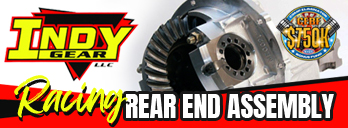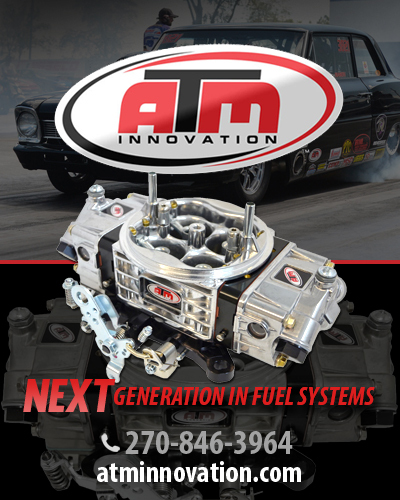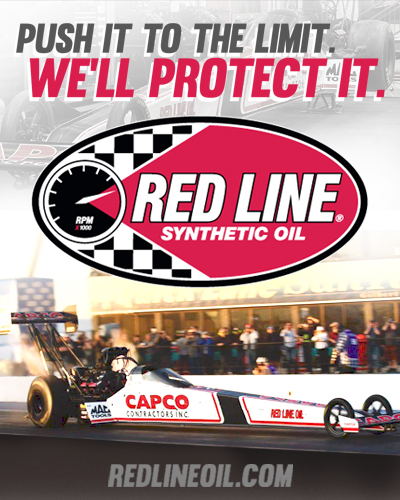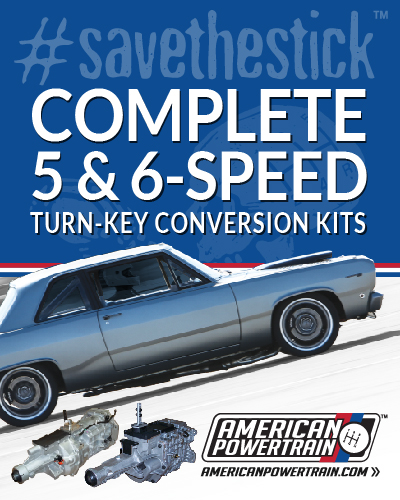40 YEARS IN DRAG RACING JOURNALISM HAS CREATED HALL OF FAME CAREER FOR PHIL BURGESS
 National DRAGSTER editor Phil Burgess believes in destiny.
National DRAGSTER editor Phil Burgess believes in destiny.
Burgess, the editor of drag racing's longest continually running publication, has been the captain of the NHRA's periodical five times longer than anyone who steered the ship before him. He recently celebrated forty years in the position.
"I tell people National DRAGSTER was born in 1960, the same year I was born," Burgess said. "Maybe I was just born to do this. I don't know anything else. Before I came to work at NHRA, I'd worked a couple of other jobs, nothing that was ever satisfying, and this opportunity came along, and it just feels like a second skin.
"I don't know what else I'd be doing. I'm not going to retire and travel the United States in a motor home. I'll be sitting at home watching the racing, maybe wanting to write stories about it."
Besides, how would one retire from a dream job which doesn't even feel like a job?
"I think when you look at today, people don't keep jobs this long anymore," Burgess said. "Back in the day, back in the 1930s, '40s, it was not unheard of for a guy to work 30, 40 years at an unnamed factory. I don't think it's that much a thing anymore, but honestly, and it might be cliche to say this, but I still love it as much as I did the first day, and that's the truth.
"The only way you stay somewhere is if you're enthusiastic about it and you work with good people. There are bad days, there are bad days on every job, but by and large, when I walk into the office and slide behind this desk, I'm like, 'Let me check my email or social media, see what's going on. Let me see who's called me, who's text messaging me, what's exciting, what's breaking.
"In our business, you get that kind of thing because there's breaking news, and there's things that are happening or going to happen or rumors of things happening; those things just keep you vibrant. When you do that daily, it doesn't feel like 40 years. It feels like not that long ago, I was the fresh-faced little punk who walked in and thought he knew everything about drag racing and is still learning every day."
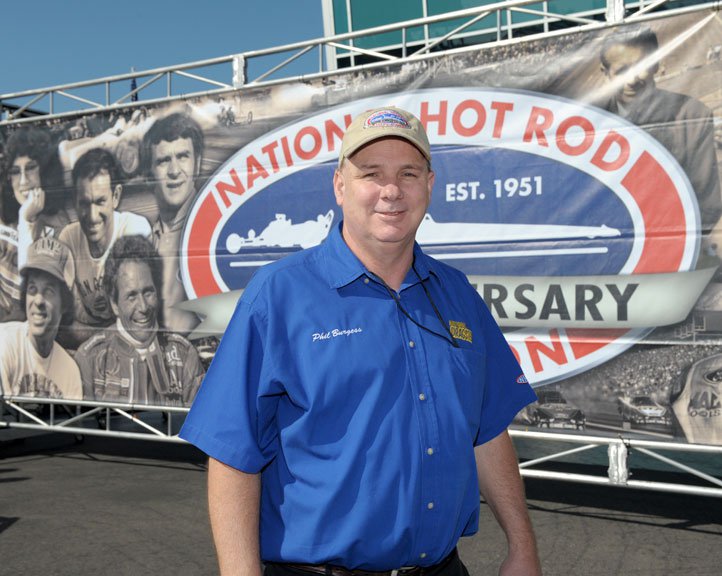 Indeed, Burgess has watched the sport change. When he came in during the mid-eighties, drag racing was on the cusp of the next level, expanding to new venues and growing well beyond its 12-race schedule. At the same time, series sponsor Winston was expanding its influence on drag racing's corporate world.
Indeed, Burgess has watched the sport change. When he came in during the mid-eighties, drag racing was on the cusp of the next level, expanding to new venues and growing well beyond its 12-race schedule. At the same time, series sponsor Winston was expanding its influence on drag racing's corporate world.
Burgess witnessed the growth of the fuel and Pro Stock worlds to the point where major sponsorships were a must for full-time teams. He was there chronicling it all.
Change has always been a constant in drag racing, but so has politics. Keeping the politics of the sport separate from his love of the straight lane game has been a challenge.
"I think we all see things happen, whether it's in sports or politics in general, that you don't agree with," Burgess said. "Because of my job and the description of my job, people know that I work for the NHRA, and people know National DRAGSTER is going to be positive when it comes to saying things about the NHRA.
"Other people can get embroiled in controversy that sheds bad light on the NHRA. For me, I love the NHRA, even if I didn't work here. It's just great. I think there are wonderful things we do. Like everybody, there's things that I don't always a hundred percent agree with, but I'm able to keep the politics out of it.
"I prefer to concentrate on the joy of the sport, the thrill of acceleration, the thrill of competition, the one-on-one thing that only drag racing has. I mean, nowhere else... You could talk pitcher versus batter, that's kind of one-on-one, but this sport is really one-on-one. It's just that kind of competition where I'm going to prove to the guy next to them, 'I'm better than you are.'"
"That's the pure element of human competition, just beating the guy next to you. To me, I just try to focus on the glory of the sport, these magnificent machines, and these fearless drivers going out and breaking the laws of physics in some cases. It's not hard to enjoy that part of it and put the rest of it to the side."
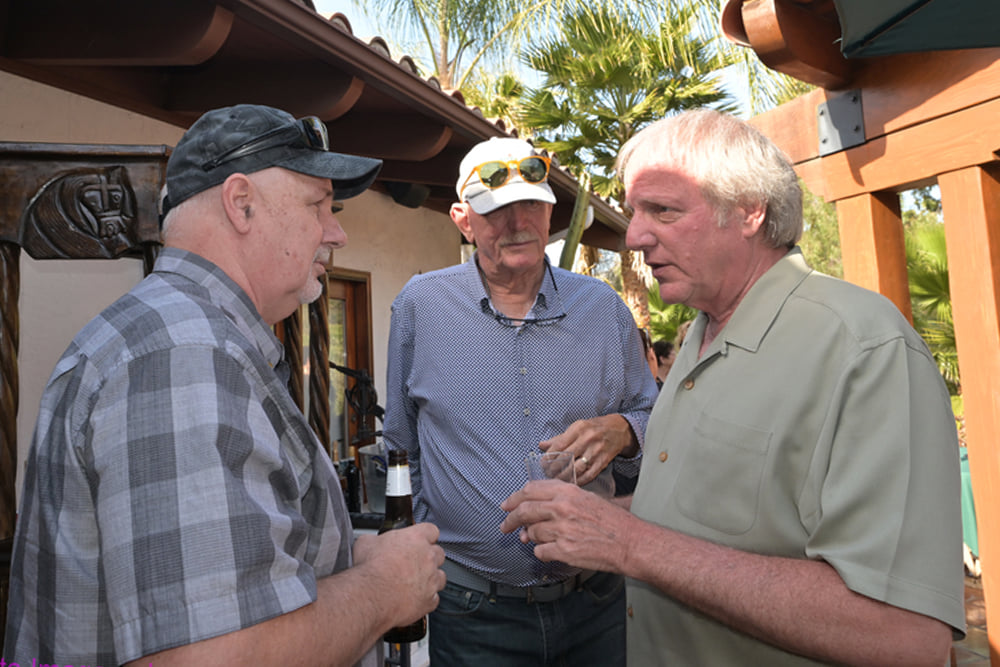 Burgess is considered Hall of Fame material by many in the industry for his efforts in painting the picture of drag racing in his words and presentation. Reaching Hall of Fame recognition would be a dream come true for Burgess, but it was nowhere near his reason for getting into drag race journalism.
Burgess is considered Hall of Fame material by many in the industry for his efforts in painting the picture of drag racing in his words and presentation. Reaching Hall of Fame recognition would be a dream come true for Burgess, but it was nowhere near his reason for getting into drag race journalism.
"We can't do something forever," Burgess said. "I'm going to do this as long as I can do it. I'm still as passionate today as when I was a teenager, as a 10-year-old kid who got his first Hot Wheels car and saw Don Prudhomme and Tom McEwen, and I'm still that excited about it. So, no, that's not really on my radar. I'm still able to do this. I feel like I'm able to do it at a fairly high level of proficiency and meet deadlines and manage all the other stuff."
Though Burgess plans to practice his craft for as long as he can, it doesn't mean he doesn't have an eye on the future of drag racing journalism.
"There are people out there, people we just don't know about, maybe that haven't thought about the opportunity to work here," Burgess said. "All it really takes to be good at anything is the passion. The passion takes you through the midnight deadlines and hard work and the travel and the rainouts and everything you suffer when you do this job. You find somebody with a passion, and you can find the next anybody."
Burgess knows that no one, not a drag racer, executive, or race fan, can truly understand the peaks and valleys associated with being the voice of drag racing's news.
"I think you really have to be in this seat to do it," Burgess said. "There's challenges to do it. Obviously, in the position that I'm at, there are a lot of masters to serve. There's a lot of... especially now that our staff is not quite as big as it used to be, I'm wearing a lot more hats. I mean, a lot of people have been since the pandemic. It's you're balancing everything. It's like, okay, you're trying to do this, and you're trying to find time to do that, and you're trying to make this guy happy, and maybe you made a mistake, and you're trying to make up to somebody.
"You've got advertisers and sponsors to consider, staff members. It's a lot of balancing. Until you've sat in an editor's chair and you're trying to decide 'what is the appropriate story that needs to go in my magazine' or 'what's the tone of that story' or the worst thing of all is to reject something that's been submitted because it doesn't meet your standards or meet your style or you feel it's the wrong message to your readership. Those are the hard situations you don't want. You appreciate everybody that contributes to what you do, but not everything can go, unfortunately."
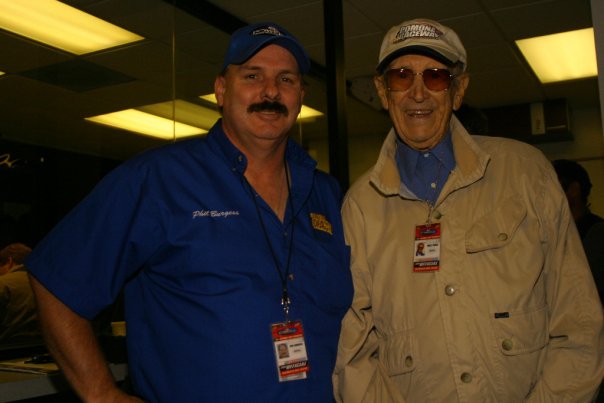 With the advent of the internet and its introduction of websites and electronic publications, Burgess has taken his game to the next level in maintaining relevance for the printed word.
With the advent of the internet and its introduction of websites and electronic publications, Burgess has taken his game to the next level in maintaining relevance for the printed word.
"It's no secret that many of them have gone away, yet National DRAGSTER is still here 62 years later. Part of my goal is to keep that always. It's still a great magazine, still a profitable magazine, and I want to keep it out there because our readers, they love it. I mean, the internet is great, and what you get on places like Competition Plus is great, but some people just still love the print magazine, so I'm there for them. I mean, I still read the... I get the Los Angeles Times delivered to my driveway every morning and prefer to read it that way."
Burgess has had to adapt to another aspect of an ever-changing digital world: social media and video content. It's a world filled with constant demands.
"It's exciting to follow that, but there was a time back in the early '70s, somebody didn't know who won a national event until National DRAGSTER showed up," Burgess said. "If you were lucky enough to have your local newspaper maybe print the agate, you might know that ahead of time or if you wanted to wait for the monthly magazines. But there was a time when National DRAGSTER was the way that a lot of people found out who won a national event. That was the case when I came here.
"Obviously, the internet came along in the mid-1990s, and that flipped everything. I still believe in the power of print. It's what people want to hold in their hands and put on their walls or show to their buddies or whatever. But no, to be able to find these other mediums, the internet, it's just fantastic for getting that news out there right away.
"Obviously, with the print magazine, you're limited on number of pages you can have, the length of how stories can be, the number of photos you can run. I don't have that problem with the internet and digital formats, so that's what I love about that. It allows you to tell a longer story without running out of space, so to speak.
"Video... I think has made it all better. It's one thing to quote somebody. Sometimes you can't get the inflection in their voice the way you want to, in the way they talk, their accent, the way they emphasize certain words. Video has allowed people to see these and be there, for all intents and purposes, where print can't exactly do that.
"I have embraced them all. I feel like I'm the old dog that can learn new tricks and embrace them, and I think that long-form video things that people do are really exciting and some of those more digestible to people, that you can just hit play and sit back in your chair and watch it rather than flip pages. I don't know what the next big thing is, but whatever it is, I'm ready for it.
For Burgess, forty years in drag racing and watching it change has prepared him for whatever comes his way.

